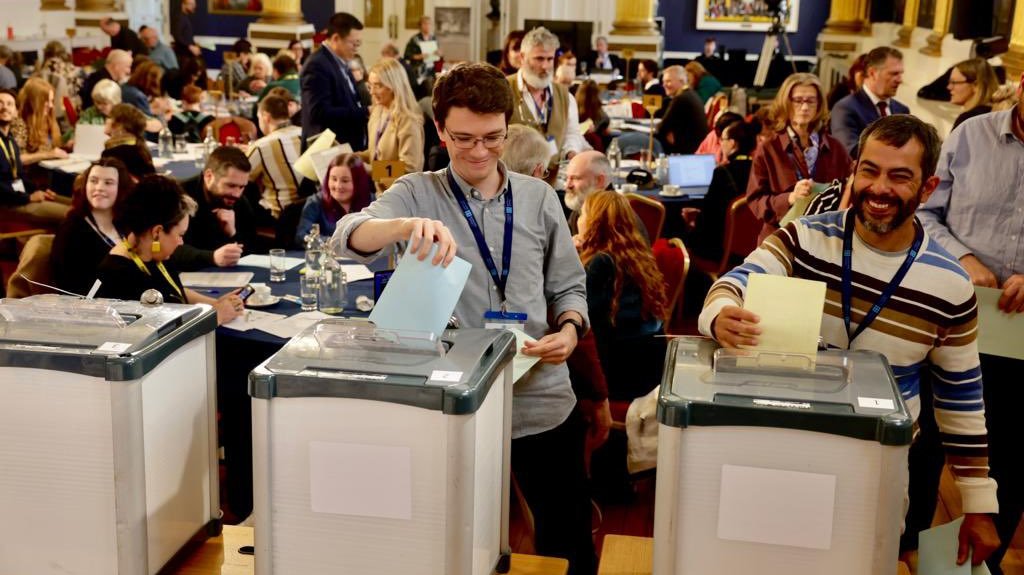Dubliners to decide on directly elected mayor

The Citizens' Assembly on the introduction of a directly elected mayor in the Irish capital Dublin recommends a plebiscite on the issue as well as a significant expansion of the mayor's powers.
At their final meeting on 1 October 2022, the assembly participants voted on which recommendations should be made in a report to the city council. These included the powers of the mayor and local government, the length of the term of office of a directly elected mayor and whether there should be procedures for removing the mayor.
Plebiscite also on mayoral powers
Some 59 per cent of assembly members were in favour of a plebiscite on the direct election of the mayor, while 63 per cent said the consultation should also address the powers of the mayor and the structures needed to support such an office.
Some 87 per cent of the assembly participants think that the mayor's term of office should be five years - currently it is one year long. 97 per cent were in favour of a procedure to vote out the mayor.
Responsibility for 15 policy areas
The citizens' assembly also proposes to give the mayor a number of new powers, including introducing, raising or lowering local taxes (88%) and raising funds outside the budget, for example by borrowing. In total, the mayor is to be responsible for 15 policy areas, including housing, homelessness, health care, transport, environment and emergency services.
Assembly members also answered "yes" to the question of whether all Dublin councillors should be made full-time, and that councillors’ salaries should be more reflective of a full-time commitment. Some 94 per cent answered in the affirmative: "Should councillors' salaries be more like a full-time job?"
"Recommendations will change Dublin for the better"
"The members of the assembly have spoken loud and clear on local government reform. Their recommendations will represent a major change in how our city is run and will, I believe, transform Dublin for the better", said Jim Gavin as Chair of the Dublin Citizens' Assembly.
The assembly meeting on 1 October was the last in a series of meeting weekends held from April to October 2022. During this time, assembly members were able to meet with, among others, a range of local government experts, political scientists, mayors from various countries, current and former politicians, and the chief executives of the four Dublin local authorities. These discussions formed the basis for the questions voted on by assembly members on 1 October 2022.
Report presented to Taoiseach
On 27 January 2023 the Chairman of the Dublin Citizens’ Assembly, Jim Gavin, has presented the Assembly’s final report and its recommendations for a powerful new mayor to Taoiseach Leo Varadkar and the Houses of the Oireachtas. The report will now be considered by Government and its recommendations passed to the Houses of the Oireachtas for further consideration, in a similar manner to previous Citizens’ Assemblies.
For the Dublin Citizens' Assembly and another citizens' assembly on biodiversity at national level, 37,000 invitations had been sent out to people in randomly selected households. 3,700 invited people had expressed interest in participating. From these, the members of the citizens' assemblies had been randomly selected. While the Citizens' Assembly on Biodiversity consists of 99 participants, the Dublin Citizens' Assembly had 79 members.
Read more: Dublin Citizens' Assembly